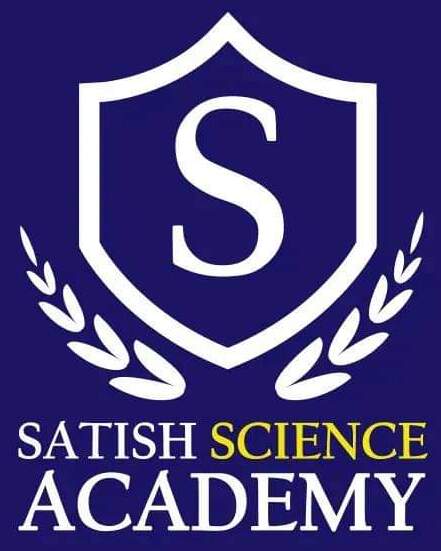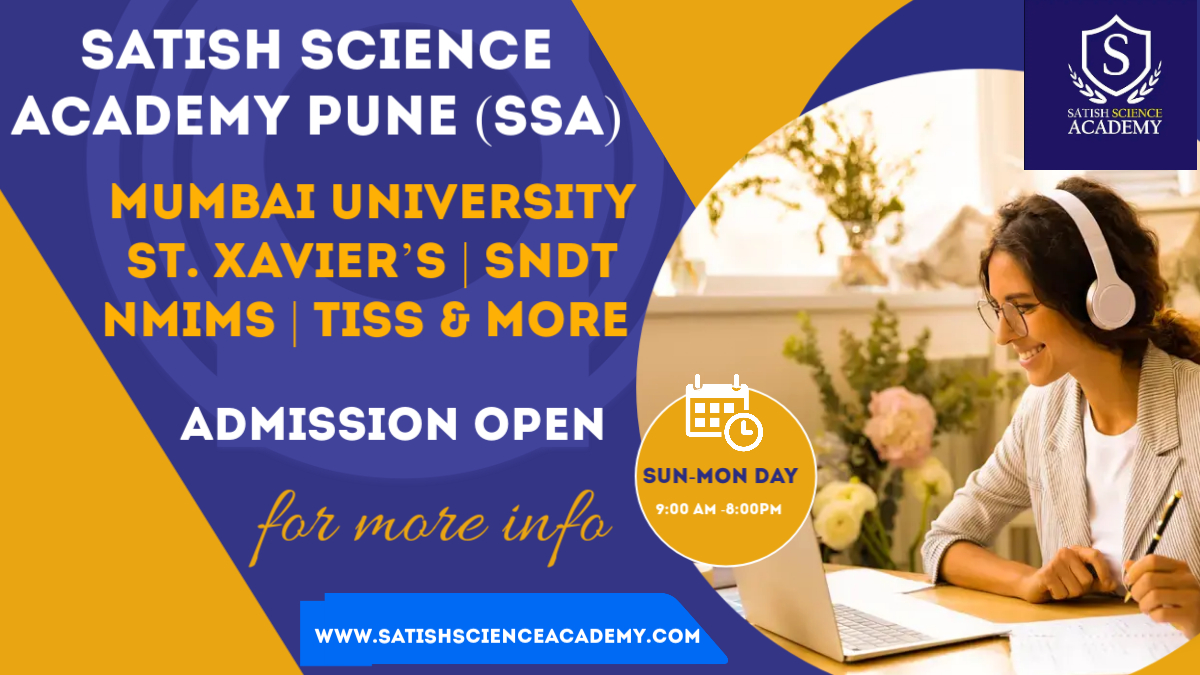Top Universities in Mumbai 2026: Complete Guide to Mumbai University, St. Xavier’s, SNDT, NMIMS, TISS, and More
1. Mumbai University (University of Mumbai)
Introduction
The University of Mumbai is one of the oldest and most respected public universities in India. Founded in 1857 during British rule, it has evolved into a leading center for higher education in South Asia. With hundreds of affiliated colleges and institutions across Mumbai and Maharashtra, the university offers a wide range of undergraduate, postgraduate, diploma, and doctoral programs. Known for academic excellence, social impact, and cultural diversity, the University of Mumbai continues to shape the careers of millions of students.
History and Evolution
Established as the University of Bombay, it followed the model of the University of London. The institution adopted the name ‘University of Mumbai’ in 1996, aligning with the city’s official name change from Bombay to Mumbai. Over the years, the university has produced some of India’s most influential thinkers, including Dr. B.R. Ambedkar, Bal Gangadhar Tilak, and Pherozeshah Mehta.

University Campuses
The University of Mumbai has several campuses:
- Kalina Campus (Santacruz East) – Administrative headquarters and home to the Institute of Distance and Open Learning (IDOL), multiple postgraduate departments, and central facilities.
- Fort Campus (South Mumbai) – The original campus known for historic architecture and home to Law and Language departments.
- The Thane Sub-Campus provides a range of self-financed programs and is equipped with contemporary facilities to support academic growth.
- Ratnagiri and Kalyan Sub-Centers – Help extend university education to students outside Mumbai.
Academic Faculties
Mumbai University hosts multiple academic faculties:
- Arts
- Science
- Commerce
- Law
- Education
- Fine Arts
- Performing Arts
- Management
- Technology
Popular Courses
Undergraduate Courses:
- B.A. (Bachelor of Arts)
- B.Com (Bachelor of Commerce)
- B.Sc (Bachelor of Science)
- BMM (Bachelor of Mass Media)
- BMS (Bachelor of Management Studies)
- LLB (Bachelor of Law)
- B.Ed (Bachelor of Education)
Postgraduate Courses:
- M.A., M.Com, M.Sc
- MBA (through affiliated colleges)
- M.Ed, LLM
- M.Phil & Ph.D. programs

Fee Structure (Indicative)
Mumbai University’s fee structure is economical for regular courses. Self-financed and professional courses may have higher fees.
Regular Courses (Aided Colleges):
- B.A. / B.Com. / B.Sc. – ₹5,000 to ₹10,000 per year
- M.A. / M.Com. – ₹6,000 to ₹12,000 per year
Self-financed Courses (Professional Colleges):
- The annual tuition fees for BMS and BMM programs typically range between ₹25,000 and ₹45,000, depending on the college.
- LLB (3-year / 5-year) – ₹15,000 to ₹35,000 per year
- MBA (through affiliated institutes) – ₹1,00,000 to ₹2,50,000 per year
- B.Sc. IT / CS – ₹30,000 to ₹70,000 per year
Note: Fee varies by college type (aided, unaided, autonomous) and category (SC/ST/OBC concessions available).
Top Affiliated Colleges under Mumbai University
Some of the most reputed colleges affiliated with the University of Mumbai include:
| College Name | Location | Notable For |
|---|---|---|
| St. Xavier’s College | Fort, Mumbai | Arts, Science, Commerce |
| Jai Hind College | Churchgate | Commerce, Media, Liberal Arts |
| HR College of Commerce | Churchgate | Commerce & Management |
| KC College | Churchgate | Science, Arts, Mass Media |
| Wilson College | Girgaon | Arts, Science |
| Ramnarain Ruia College | Matunga | Science and Arts |
| Podar College | Matunga | Commerce |
| Mithibai College | Vile Parle | Arts, Commerce, Science |
| Sophia College | Breach Candy | Arts, Science (Women’s College) |
| Bhavan’s College | Andheri | Arts, Science, Commerce |
Placements and Career Opportunities
Although Mumbai University itself does not offer centralized placement for all affiliated colleges, most top colleges have strong placement cells and career development centers.
Key Placement Highlights:
- St. Xavier’s College: Companies like McKinsey, Deloitte, PWC, Infosys, and Accenture regularly hire graduates.
- HR College and Jai Hind: Known for placements in finance, media, marketing, and consulting.
- Mithibai College: Recruits from IT, biotechnology, and pharma sectors.
Average salary packages range from ₹3.5 LPA to ₹6.5 LPA for undergraduate programs and ₹6 LPA to ₹12 LPA for postgraduate programs, especially MBA or technical courses.
Students can also pursue civil services, academic research, entrepreneurship, or further studies abroad.

Campus Culture and Student Life
Mumbai University and its affiliated colleges foster a vibrant campus life that blends academics, culture, and social responsibility.
Cultural Highlights:
- Inter-college fests like Malhar (St. Xavier’s), Kaleidoscope (Sophia), and Mood Indigo (IIT-B – guest collaboration) are well-known.
- Active student bodies and societies in drama, debate, film, dance, and music.
- National Service Scheme (NSS) and National Cadet Corps (NCC) participation is encouraged.
- Sports activities including football, cricket, table tennis, and athletics are promoted.
Students gain exposure not only to academics but also to personality development, creativity, and leadership opportunities.
Admission Process
Admissions are managed both online and offline depending on the course and college.
Steps for Admission:
- Visit the respective college/university department website.
- Fill out the online pre-admission enrollment form on Mumbai University’s portal: https://mumoa.digitaluniversity.ac/
- Submit documents and pay fees as per the college guidelines.
- Admission is granted based on merit (for most UG courses) or entrance exam (for PG and professional courses).
Reservation policies and quotas are applicable as per Maharashtra Government norms.
Mumbai University Results – 2025 (How to Check)
Students can check their semester exam results by following these steps:
- Go to https://mu.ac.in
- Click on the “Examination” tab and then “Results”
- Choose your course, faculty, and semester
- Enter your seat number or PRN
- Download and print the mark sheet for records
Distance Education – IDOL Mumbai University (Kalina Campus)
The Institute of Distance and Open Learning (IDOL) at Kalina offers flexible, quality education to students across India.
Courses Offered:
- B.A., B.Com, B.Sc IT
- M.A., M.Com, M.Sc (Mathematics, IT)
- PG Diplomas and certificate programs
IDOL Fee Structure (approx.):
- B.A. / B.Com: ₹5,500 – ₹7,000 per year
- M.A. / M.Com: ₹6,000 – ₹9,000 per year
- B.Sc IT: ₹15,000 – ₹25,000 per year
Study materials, video lectures, and online assessments make it a great option for remote learners and working professionals.
2. St. Xavier’s College (Autonomous under Mumbai University)
Introduction to Xavier’s Legacy
St. Xavier’s College, Mumbai, established in 1869 by German Jesuits, is one of India’s premier institutions for higher education. Affiliated with the University of Mumbai, it gained autonomous status in 2010 while maintaining its affiliation for degree conferment. Known for its rigorous academics, social responsibility, and holistic development, St. Xavier’s stands as a beacon of liberal arts, science, and media education in India. Its Gothic-style campus in South Mumbai is both a heritage site and a hub of intellectual activity.
Named after St. Francis Xavier, the college is run by the Society of Jesus (Jesuits), a Catholic religious order with a strong legacy in global education. Over the decades, St. Xavier’s has become synonymous with academic excellence, secular values, and leadership development.
Courses Offered
Over the years, St. Xavier’s College has nurtured countless graduates who have gone on to make significant contributions across diverse fields on both national and global platforms
Undergraduate Courses:
- B.A. (Bachelor of Arts) – English, Psychology, Sociology, Political Science, History, Economics, Philosophy, etc.
- B.Sc. (Bachelor of Science) – Physics, Chemistry, Botany, Zoology, Life Science, Biotechnology, Mathematics, Statistics, Microbiology, and more.
- BMM (Bachelor of Mass Media) – With specializations in Journalism and Advertising.
- BMS (Bachelor of Management Studies) – Covers core areas of business, marketing, HR, and finance.
- B.Sc. IT (Information Technology) – Focuses on programming, data management, and software development.
Postgraduate Courses:
- M.A. (Public Policy and Sociology)
- M.Sc. (Biotechnology, Microbiology, Life Science, Big Data Analytics)
- PG Diploma in Expressive Arts Therapy (in collaboration with St. Xavier’s Institute of Counselling Psychology)
These programs emphasize academic depth, research, and industry integration, with many departments offering research opportunities at the postgraduate level.
Cut-Off Marks and Admission Procedure
Admissions at St. Xavier’s College are highly competitive, and the cut-off marks are among the highest in Mumbai.
Admission Criteria:
- For most UG programs, admission is based on Class 12 board exam results.
- BMM and BMS: Require candidates to appear for an entrance test followed by a merit-based shortlisting process.
- M.Sc. and M.A. programs: Involve a departmental entrance test and/or personal interview.
Cut-Off Trends:
- Arts and Science Streams: Cut-offs typically range from 92% to 96% for general category students.
- BMM/BMS Entrance: A combination of entrance test and academic merit; the entrance exam tests general awareness, logic, and communication skills.
Applicants must fill out online forms through the official college website and follow instructions for document verification and fee payment.
NAAC Grade and UGC Autonomy
St. Xavier’s College is accredited with an A+ grade by the National Assessment and Accreditation Council (NAAC) and has been granted autonomous status by the University Grants Commission (UGC). This autonomy allows the college to design its own curriculum, examination system, and academic calendar, leading to more dynamic and updated education.
Despite autonomy, degrees are awarded by the University of Mumbai, ensuring recognition across India and globally.
Campus Life and Student Culture
Campus life at St. Xavier’s is vibrant, inclusive, and intellectually stimulating. The college encourages students to engage beyond the classroom through various clubs, societies, and events.
Highlights of Student Life:
- Malhar Fest: One of India’s most iconic college festivals, attracting participation from across the country.
- Drama and Performing Arts: The college has a strong reputation in theatre, hosting annual productions in English, Hindi, and Marathi.
- Student Societies: Over 40 clubs including Debate Society, Entrepreneurship Cell, Nature Club, Gender Issues Cell, and AICUF (All India Catholic University Federation).
- Volunteering and Social Work: Students actively participate in social outreach programs, NSS, and rural internships.
- Jesuit Ethos: Emphasis on values like compassion, integrity, and service alongside academic excellence.
The Gothic architecture, lush green campus, well-equipped labs, sports facilities, and Wi-Fi-enabled classrooms further enhance the student experience.
Alumni Success Stories
St. Xavier’s College has produced a remarkable array of alumni who have excelled in various professional arenas, both nationally and internationally:
- Mukesh Ambani – Chairman, Reliance Industries (attended briefly)
- Anand Mahindra – Chairman, Mahindra Group
- Rajdeep Sardesai – Senior journalist and TV anchor
- Freida Pinto – International actress
- Zarina Mehta – Co-founder, UTV and Channel V
- Arundhati Subramaniam – Award-winning poet
- Neerja Bhanot – Ashok Chakra awardee
Many alumni have excelled in the fields of science, law, civil services, media, academia, and entrepreneurship, carrying forward the Xavier’s spirit of excellence and service.
SNDT Women’s University, Mumbai
Introduction: Pioneering Women’s Education in Asia
SNDT Women’s University (Shreemati Nathibai Damodar Thackersey Women’s University) holds the distinction of being Asia’s first women’s university, established in 1916 by social reformer and educationist Maharshi Dhondo Keshav Karve. What began as a vision to empower Indian women through education has now grown into one of India’s most respected institutions dedicated exclusively to women’s academic and personal growth. Headquartered in Mumbai, SNDT has consistently worked toward enhancing women’s roles in society through education, innovation, and leadership development.
Vision and Mission
Vision:
To nurture and develop women through transformative education, enabling them to become confident, skilled, and socially responsible global citizens.
Mission:
- To offer quality education across disciplines exclusively for women.
- To promote women-centric research, entrepreneurship, and vocational training.
- To empower women through academic excellence and skill development.
- To build a gender-just society by spreading awareness and opportunities.
The university promotes inclusivity and accessibility, ensuring that women from all social and economic backgrounds have access to education that uplifts and empowers.
Campus Locations
SNDT Women’s University has multiple campuses in Maharashtra, strategically located to maximize access to female students:
Churchgate Campus (Mumbai):
Located in South Mumbai, this campus houses administrative offices and offers courses in education, arts, commerce, and social sciences.
Juhu Campus (Mumbai):
A sprawling and scenic campus offering courses in science, management, fashion design, and vocational subjects.
Pune Campus:
Focused on arts, home science, social work, and regional development programs.
These campuses are well-connected and equipped with modern facilities including libraries, computer labs, hostels, canteens, research centers, and auditoriums.
Courses Offered Exclusively for Women
SNDT Women’s University provides an extensive range of academic programs at the undergraduate, postgraduate, diploma, and doctoral levels through its various faculties.
Faculty of Arts and Fine Arts:
- B.A., M.A. in Psychology, Sociology, Literature, Economics, etc.
Faculty of Science:
- B.Sc., M.Sc. in Computer Science, Biotechnology, Nutrition, Home Science, etc.
Faculty of Education:
- B.Ed., M.Ed., and Ph.D. Courses designed to develop expertise in educational theory, instructional methods, and classroom leadership
Faculty of Commerce and Management:
- B.Com., M.Com., BMS, MBA (specializations in HR, Finance, Marketing)
Faculty of Technology:
- B.Tech in Computer Science, Food Technology
- M.Tech and research-based programs
Faculty of Social Work:
- BSW, MSW in clinical and community practice
Faculty of Library & Information Science:
- Bachelor and Master’s degrees in Library Science
Faculty of Fashion Design:
- Bachelor in Fashion Design
- Master in Fashion Management
- Short-term vocational and certification courses
All programs emphasize women’s empowerment, employability, and real-world relevance.
Online Admissions and Results
SNDT has adopted a digitally enabled admission and academic process to simplify access and ensure transparency:
- Students can apply online via www.sndt.ac.in
- Uploading scanned documents, selecting courses, and paying fees can all be done online.
- Admission is generally based on merit; some vocational and PG courses may require entrance exams or interviews.
Exam results are declared on the university portal and can be accessed with a seat number or PRN.
Distance Education through CDE (Centre for Distance Education)
To reach women who cannot attend regular college, SNDT offers a robust distance learning program via the Centre for Distance Education (CDE).
Courses Offered:
- B.A., B.Com., M.A., M.Com. (distance mode)
- PG Diplomas in Early Childhood Education, Mass Media, and Counselling
Highlights:
- Flexible learning environment
- Printed and digital study material
- Online video lectures and doubt-solving
- Term-end examinations held at designated centers
This initiative is especially beneficial for working women, homemakers, and rural students.
Fee Structure (Indicative)
SNDT aims to keep education affordable while ensuring quality.
- B.A./B.Com.: ₹6,000 – ₹12,000 per year (depending on program and location)
- B.Sc.: ₹15,000 – ₹30,000 per year
- MBA/M.Sc./M.A.: ₹25,000 – ₹50,000 per year
- Distance Education Courses: ₹5,000 – ₹10,000 per year
Scholarships are available for SC/ST/OBC, minority, and economically weaker students through state and central schemes.
Placement and Career Development
The Placement Cell at SNDT Women’s University actively connects students with industry through campus drives, job fairs, and internships.
Top recruiters include:
- Tata Consultancy Services (TCS)
- Wipro
- Capgemini
- Reliance Retail
- Infosys
- NGOs and educational organizations
Placement support is strong in fields like education, IT, design, social work, and healthcare.
Additionally, the university hosts workshops on resume writing, interview skills, entrepreneurship, and career counselling. Many graduates also pursue higher studies or competitive exams like NET, SET, or UPSC.
Women Empowerment and Social Impact
SNDT’s legacy is deeply rooted in women’s empowerment. Beyond academics, the university has pioneered initiatives such as:
- Gender sensitization workshops
- Legal aid and women’s rights awareness camps
- Entrepreneurship training for self-employment
- Rural outreach and community development programs
- Mental health and wellness counselling centers on campus
These programs reflect the university’s commitment to nurturing confident, socially aware, and economically independent women.
4. NMIMS (Narsee Monjee Institute of Management Studies), Mumbai
Introduction: A Leading Private University in India
Founded in 1981 under the aegis of Shri Vile Parle Kelavani Mandal (SVKM), NMIMS began as a specialized institute for management studies and has since grown into a prominent deemed-to-be university, widely acknowledged for its academic excellence and diverse programs for academic excellence and innovation. Headquartered in Mumbai, NMIMS now operates several campuses across India, with its Mumbai campus being the flagship. Accredited by NAAC with an A+ grade, NMIMS is one of the top choices for students aiming for careers in business, law, technology, and the arts.
Premier MBA Program Offered by the School of Business Management (SBM)
The MBA program offered by the School of Business Management (SBM) at NMIMS Mumbai is consistently ranked among India’s best private B-schools. Known for its strong curriculum, industry-aligned pedagogy, and corporate exposure, the program attracts students nationwide.
Key Features of NMIMS MBA:
- Specializations: Finance, Marketing, Operations, HR, Business Analytics, and Digital Transformation.
- Duration: 2 years (Full-time).
- Experiential Learning: Students engage in real-world problem solving through hands-on projects, in-depth case analyses, and structured industry internships.
- Global Exposure: Collaborations with renowned international institutions provide students opportunities for academic exchange and global learning experiences.
Admission is through the NMAT by GMAC, a national-level management entrance exam accepted by leading B-schools across India.
Other Prominent Schools and Programs
NMIMS Mumbai also offers a wide variety of undergraduate and postgraduate programs across disciplines:
1. School of Law
- Programs: B.A. LL.B., B.B.A. LL.B., LL.M.
- Focus: Legal reasoning, moot courts, and internship-based learning.
2. School of Technology and Engineering under NMIMS (Mukesh Patel Campus)
- Programs: B.Tech, MBA Tech (integrated), M.Tech
- Focus: AI, Data Science, IT, Mechanical, Civil, and interdisciplinary tech education.
3. Anil Surendra Modi School of Commerce
- Programs: B.Com (Hons.), BBA, M.Sc. Finance
- Known for consistently high cut-offs and excellent placements.
4. School of Design
- Programs: B.Des. (Humanizing Technology)
- Emphasizes innovation, human-centric design, and user experience.
Entrance Exams: NPAT and NMAT
NMIMS admissions are competitive and entrance-based:
- All NMIMS MBA admissions are conducted through the NMAT exam administered by GMAC. It tests Quantitative Skills, Logical Reasoning, and Language Proficiency.
- NPAT: Required for undergraduate programs like BBA, B.Com (Hons), B.Sc. Finance, and Design.
Online registrations for both exams are available on the official NMIMS website, and exam schedules vary year to year.
Placements and Industry Connections
NMIMS Mumbai has built a strong placement ecosystem across programs.
MBA Placements 2024 Highlights:
- Highest Package: ₹67.40 LPA (International)
- Average Package: ₹26.63 LPA (Domestic)
- Top Recruiters: Deloitte, KPMG, EY, Infosys, Amazon, Aditya Birla Group, HUL, Cognizant, ICICI Bank
Commerce & Tech Placements:
- Undergraduate programs also report excellent placement rates with top firms hiring for roles in finance, analytics, legal, marketing, and technology.
The university’s alumni network, corporate tie-ups, and skill-enhancement programs play a critical role in preparing students for real-world success.
5. Tata Institute of Social Sciences (TISS), Mumbai
Introduction: India’s Premier Social Science Institution
Established in 1936, the Tata Institute of Social Sciences (TISS) stands as a pioneer in advancing social science education, research, and policy-making in India. Initially established as the Sir Dorabji Tata Graduate School of Social Work, TISS gained university status in 1944 and is now a deemed-to-be university under the University Grants Commission (UGC). TISS Mumbai remains the central campus and the most sought-after among its various centers in India.
Renowned for its multidisciplinary programs, commitment to social justice, and policy impact, TISS stands at the intersection of academia and activism.
Academic Programs and Schools
TISS offers cutting-edge postgraduate and doctoral programs through its multiple schools and research centers.
Flagship Master’s Programs:
- Master of Social Work (MSW) – Specializations in Clinical Practice, Community Organization, Dalit & Tribal Studies, and more.
- M.A. in Development Studies, Public Health, Human Resources Management, Women’s Studies, and Education
- M.A. in Social Entrepreneurship
Other Programs:
- Integrated M.Phil.-Ph.D. in Social Sciences
- Short-term diplomas in Disaster Management, Counselling, and Human Rights
These programs are highly research-oriented and supported by a strong base of fieldwork, internships, and real-time policy intervention.
TISSNET and Admission Updates
Admissions to most PG courses at TISS were earlier based on performance in the TISSNET examination. However, recent updates (as of 2024–25) indicate a change in the entrance pattern, with some courses shifting to CUET-PG or institute-specific evaluation processes including interviews and writing tests.
Candidates are advised to refer to the official TISS admissions portal for the latest entrance requirements and cut-off updates.
Placement and Field-Based Learning
Though not a traditional placement-driven institution, TISS offers 100% placement assistance for professional programs such as Human Resources Management & Labour Relations (HRM & LR), which competes with top B-schools in terms of packages.
TISS HRM 2024 Placement Highlights:
- Average CTC: ₹23 LPA
- Top Recruiters: Accenture, TCS, Nestlé, Asian Paints, Deloitte, Marico
Students in social sciences, development studies, and public policy often secure roles in:
- NGOs, international organizations (UNICEF, WHO)
- Government bodies and think tanks
- CSR and ESG departments of MNCs
Fieldwork is a core component of TISS pedagogy. Students work directly with communities, grassroots organizations, and local governance units, gaining deep insights into real-world challenges and developing practical problem-solving skills.
Global Collaborations and Social Impact
TISS has built long-standing partnerships with universities and institutions worldwide including:
- University of Chicago
- London School of Economics
- University of Sydney
- UNDP, UNICEF, WHO
These partnerships support student exchange, joint research, and global internships.
In India, TISS has played a pivotal role in shaping public policy, supporting disaster relief, and advocating for gender rights, labor reforms, and education access. Its contribution to nation-building through socially engaged research is widely recognized.
6. Distance & Online Education in Mumbai
Introduction to IDOL, University of Mumbai
he Institute of Distance & Open Learning (IDOL), affiliated with the University of Mumbai, stands as one of India’s leading institutions for distance education. Established to extend quality higher education to learners beyond traditional classrooms, IDOL Mumbai serves thousands of students across India and abroad. It operates from the university’s Kalina campus and is recognized by the University Grants Commission (UGC-DEB) for its adherence to academic quality and accessibility.
IDOL offers flexible, affordable, and accredited programs for students who cannot attend regular college—particularly working professionals, homemakers, rural learners, and international students seeking recognized Indian degrees.
Key Features of Mumbai University IDOL
- UG & PG Degree Programs: Offers B.A., B.Com, M.A., M.Com, M.Sc. (Mathematics, IT), and B.Sc. IT.
- NAAC Accredited: Part of the University of Mumbai (NAAC Grade A+), ensuring high academic standards.
- Fully Online Options: Some programs now support e-learning modules and digital study materials.
- Affordable Fee Structure: Compared to regular degree programs, IDOL courses are cost-effective and widely accepted.
- Recognized Degrees: Equivalent in value to traditional Mumbai University degrees.
Eligibility and Advantages for Working Professionals
Eligibility Criteria
- Undergraduate Programs: Must have passed 10+2 or equivalent from a recognized board.
- Postgraduate Programs: A bachelor’s degree in the relevant subject is required from a recognized university.
Who Should Apply
- Full-time working individuals seeking career advancement.
- Dropouts or students who couldn’t pursue regular degrees.
- Students residing in rural or underserved regions where attending regular classes is challenging.
- People seeking to pursue an additional degree or enhance their expertise in a specific field.
Benefits for Working Professionals
- Flexible Timings: No need to attend daily lectures—ideal for balancing work and studies.
- Self-paced Learning: Study from anywhere, anytime.
- Skill Enhancement: Continue earning while upgrading qualifications.
- Digital Certification: Some programs issue e-certificates and provide online assessments.
Digital Infrastructure and Learning Support
IDOL Mumbai has digitized much of its content and support system:
- Online Study Materials: Students receive downloadable course content in PDF and video formats.
- Learning Management System (LMS): An online platform that provides access to course materials, assignments, and live interactive classes.
- Online Examinations: Many exams are conducted online with proctoring software.
- Student Helpdesk: 24×7 query resolution, academic guidance, and exam support.
7. Admission Process & Eligibility (General Guide)
Whether you’re applying for regular, online, or distance learning programs in Mumbai, here’s a quick breakdown of the general admission process across universities like Mumbai University, NMIMS, SNDT, and TISS.
Step-by-Step Admission Guide
1. Online Application Portal
All major universities including Mumbai University use centralized online admission systems. Applicants must:
- Visit the official university website.
- Register using valid email and mobile.
- Complete the application form and submit the required scanned documents online.
2. Documents Required
- Passport-size photograph
- Scanned signature
- Class 10 & 12 mark sheets
- Graduation certificate (for PG courses)
- Caste/Category certificate (if applicable)
- ID proof (Aadhaar, PAN, or passport)
3. Timeline
- UG admissions usually begin in May–June, immediately after board results.
- PG admissions start around June–July.
- Admission rounds include form submission, document verification, and merit list declaration.
Merit-Based vs Entrance-Based Admissions
- Merit-Based: Most undergraduate programs (e.g., B.A., B.Com) are filled based on 12th-grade scores.
- Entrance-Based: Competitive programs like MBA (NMAT), MSW (TISSNET), Law (CLAT/NPAT) require entrance exams.
Each course page usually specifies the admission mode and cut-off criteria.
Reservation Policy
All universities in Mumbai follow reservation norms as per Government of Maharashtra guidelines:
- SC/ST/OBC/EWS: Reserved seats with relaxation in eligibility criteria.
- PwD (Persons with Disability): Reserved quota and exam accommodations.
- Minority Quota: Applicable in minority-run institutions like St. Xavier’s (Christian minority) and SNDT (Women-only).
Candidates claiming reservation must submit valid certificates at the time of admission.
Online Fee Payment and Confirmation
Once selected, candidates must:
- Log in to the admission portal.
- Pay the course fee online using credit card, debit card, UPI, or net banking.
- Download the admission confirmation receipt.
For distance and online programs like IDOL, students receive login credentials to the LMS shortly after fee confirmation.
8. Career Opportunities After Graduation
Mumbai’s Dynamic Job Market
Mumbai, often dubbed the financial capital of India, offers a diverse and thriving job market spanning multiple industries. Graduates from Mumbai’s universities and colleges find ample career opportunities in sectors such as finance, information technology, media and entertainment, healthcare, manufacturing, and more. The city’s status as a commercial and industrial hub attracts multinational corporations, startups, and established firms alike, creating a competitive and vibrant employment landscape.
Internships and Campus Placements
Most reputed universities and colleges in Mumbai actively facilitate campus recruitment drives and internship programs to bridge the gap between academic learning and industry requirements. Institutions like the University of Mumbai, NMIMS, SNDT Women’s University, and St. Xavier’s College have dedicated placement cells that connect students with top recruiters from diverse sectors including banking, IT services, consulting, FMCG, and digital marketing.
Internships, often integrated into academic curricula, offer students practical exposure, networking opportunities, and skill development—making them more employable upon graduation. Many companies in Mumbai also offer summer internships, apprenticeships, and training programs, which frequently convert into full-time job offers based on performance.
Higher Education and Global Opportunities
Graduates seeking to advance their academic credentials have access to numerous postgraduate and professional courses within Mumbai and beyond. Mumbai’s universities provide a variety of specialized master’s degrees, diplomas, and certification courses aligned with evolving industry trends.
Furthermore, Mumbai graduates benefit from the city’s global connectivity and collaborations. Many universities have exchange programs and partnerships with international institutions, enabling students to pursue further studies or research abroad. Mumbai’s alumni network also plays a vital role in opening doors to global career opportunities across continents.
Frequently Asked Questions (FAQs)
What does Mumbai University stand for?
The University of Mumbai, commonly referred to as Mumbai University, is one of India’s oldest and most prestigious universities, established in 1857. It offers a wide range of academic programs across various fields of study.
How do I access Mumbai University’s exam results online?
To view your exam results, visit Mumbai University’s official website and enter your roll number or registration details in the results section of the portal.
Which courses are available through the Institute of Distance and Open Learning (IDOL) at Mumbai University?
Mumbai University’s IDOL offers various undergraduate and postgraduate courses such as Bachelor of Arts (B.A.), Bachelor of Commerce (B.Com), Bachelor of Science (B.Sc.), and Master’s programs, all delivered through distance education.
Is St. Xavier’s College connected to Mumbai University?
Yes, St. Xavier’s College is academically affiliated with Mumbai University. Although it operates autonomously, it awards degrees under the university’s jurisdiction.
How does the admission procedure work at SNDT Women’s University?
Admissions at SNDT Women’s University are generally merit-based. Applications are submitted online, and some programs may require entrance exams or interviews as part of the selection process.
Which entrance tests are required to secure admission at NMIMS?
For admission to NMIMS, candidates need to clear specific entrance tests: NPAT for undergraduate programs and NMAT for postgraduate management courses.
What distinguishes Tata Institute of Social Sciences (TISS) from other Mumbai universities?
TISS stands out for its focus on social sciences. It offers specialized programs in social work, public health, and development studies, emphasizing research, policy impact, and societal development.
Are Mumbai University IDOL courses suitable for working individuals?
Yes, the distance learning programs offered by IDOL are designed to be flexible, making them ideal for working professionals who need to balance their studies with job responsibilities.
Which are the leading women-only educational institutions in Mumbai?
Top women-only institutions in Mumbai include SNDT Women’s University, Sophia College for Women, and R.A. Podar College. These colleges focus on providing quality higher education exclusively for women.







